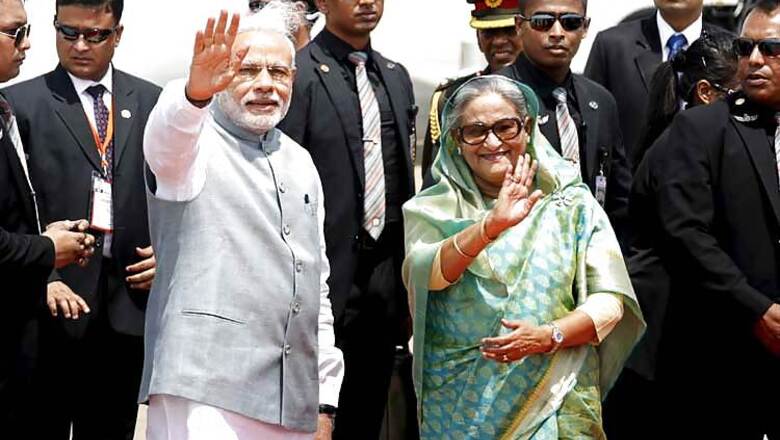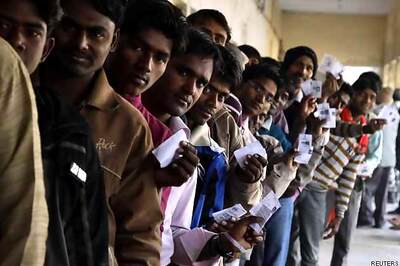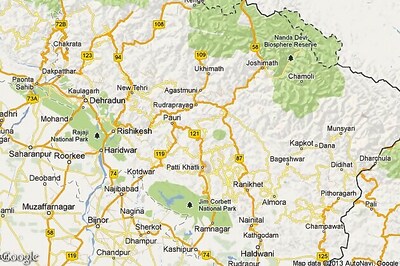
views
Dhaka: A day after Prime Minister Narendra Modi wrapped up his tour to Bangladesh, mainstream media on Dhaka on Monday hailed him as a "visionary" leader for "thinking out of the box" though some opined that the much-hyped visit "failed" to yield any significant benefits for Bangladeshi people.
"This time too, there is nothing on Teesta, yet we have agreed on all forms of transit in the name of connectivity," leading English newspaper the Daily Star said in a front page editorial, comparing the visit of Modi with that of former Prime Minister Manmohan Singh in 2011.
"This outcome is not an evidence of the persuasive power of the Indian Prime Minister Narendra Modi but more an expression of our faith in him to deliver on all the promises that his predecessor so miserably failed to keep," the editorial said.
The editorial, however, commented "to be fair to Mr Singh, he did most of the preparatory work". Lauding Modi for his "neighbourhood first" policy, the paper said: "No Indian prime minister ever said anything other than being very attentive to her neighbours."
"But unfortunately, 'neighbours' usually meant Pakistan and occasionally China...All this will be changed by Prime Minister Modi we hope, and we, in Bangladesh, must encourage him to do so, and do so fast...then Bangladesh will naturally emerge as India's most important neighbour, keeping China aside for the moment. If that happens -- and we don't see why not -- then the sky is the limit for our bilateral cooperation."
"...That is our expectation from the new, visionary, path breaking, 'thinking out of the box' Indian leader who seems to mesmerise people wherever he goes, as he did in his parting speech at the BICC," it said.
The mass circulation Protom Alo prominently carried an analytical article by Information Minister Hasanul Haq Inu that headlined "Hasina-Modi opened the golden door of trust" while the newspaper carried another piece by leading foreign relation analyst Humayun Kabir saying "Modi carried forward the process initiated by Manmohan".
Kabir said there could be "debates" over what the Modi visit yielded compared to the expectations and euphoric atmosphere which was created over the tour, but it achieved a major development as "on the question of relations with India, Bangladesh reached a rare political consensus".
"All the political parties now expressed their willingness to develop ties with India, unlike the past taking sides in this regard," said Kabir. Kabir, however, regretted that Dhaka did not get any specific assurance from Modi's visit about the Teesta deal.
Some newspapers, however, also pondered if Modi's visit could have yielded any benefit for Bangladesh.
The New Age, widely known for its anti-government stance and bias towards ex-premier Khaleda Zia's Bangladesh Nationalist Party (BNP), carried an editorial headlined "No significant benefits of Modi visit for Bangladesh".
"The much-hyped two-day visit of Indian Prime Minister Narendra Modi to Dhaka has evidently failed to yield any significant benefits for people of Bangladesh but for exposing the shameless appeasement of foreign power of the mainstream political parties of Bangladesh for their perceived gains," it said.




















Comments
0 comment